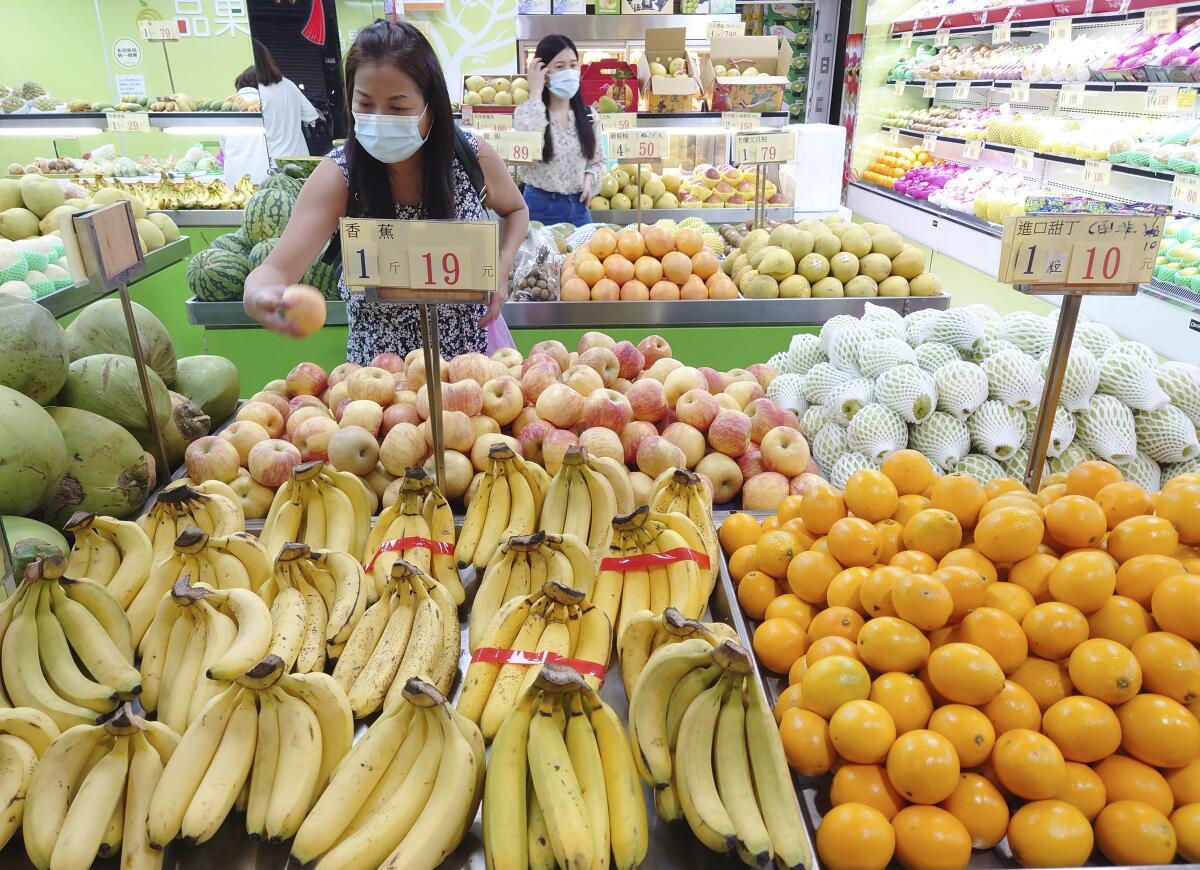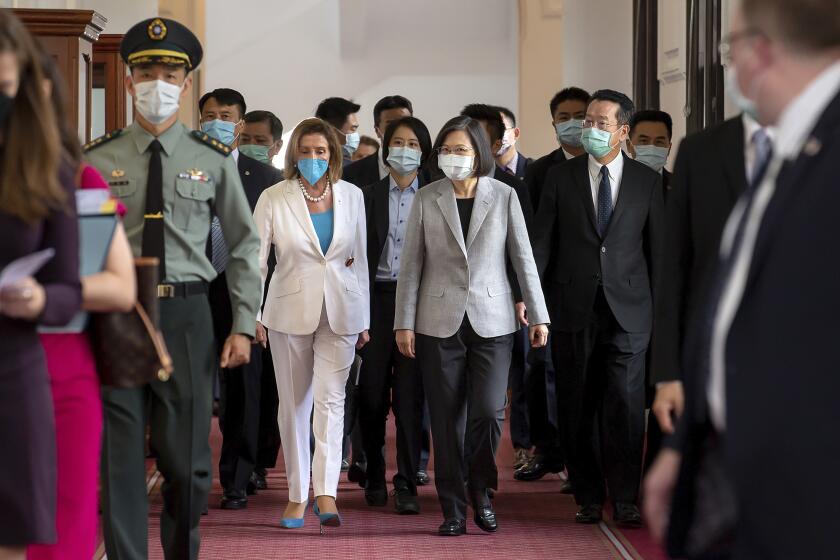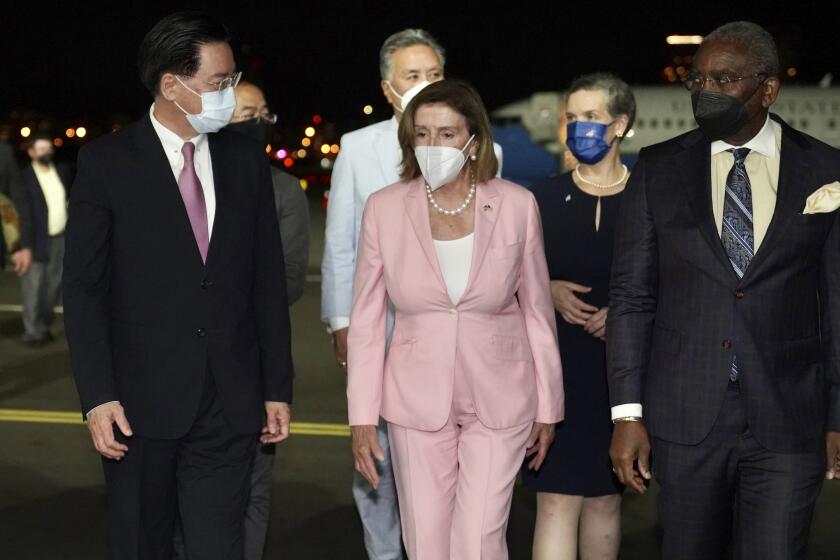China blocks some Taiwan imports in response to Pelosi visit — but not computer chips

- Share via
BEIJING — China blocked imports of citrus and fish from Taiwan in retaliation for a visit by House Speaker Nancy Pelosi, but has avoided disrupting one of the world’s most important technology and manufacturing relationships.
The two sides, which split in 1949 after a civil war, have no official relations but do boast multibillion-dollar business ties, especially in the flow of Taiwanese-made processor chips needed by Chinese factories that assemble the world’s smartphones and other electronics.
They built that business while Beijing threatened for decades to enforce the ruling Communist Party’s claim to the island by attacking it.
Two-way trade soared 26% last year to $328.3 billion. Taiwan, which produces half the world’s processor chips and has technology the mainland can’t match, said sales to Chinese factories rose 24.4% to $104.3 billion.
“The global economy cannot function without chips that are made in either Taiwan or China,” said Carl B. Weinberg of High-Frequency Economics in a report.
On Wednesday, Beijing blocked imports of citrus fruits and frozen mackerel from Taiwan after Pelosi (D-San Francisco) arrived in Taiwan. Those products are only a fraction of Taiwan’s total exports to the Chinese mainland. Beijing has avoided disrupting the flow of chips and other industrial components, a step that would send shock waves through the shaky global economy.
Defying Beijing’s saber-rattling, Nancy Pelosi says her visit to Taiwan is a demonstration of U.S. commitment to the democratically ruled island.
Beijing also announced four days of military exercises with artillery fire in waters around Taiwan. That might delay or disrupt shipping to and from the island, one of the biggest global traders.
The potential disruption adds to concerns over weakening global economic growth.
The Communist Party says Pelosi’s visit might embolden Taiwan to make its decades-old de facto independence permanent. Beijing says that would lead to war.
The Biden administration has sought to turn down the volume on the visit, insisting that there’s no change in America’s long-standing “one-China policy,” which recognizes Beijing but allows informal relations and defense ties with Taipei.
For Pelosi, the Taiwan visit is a legacy-building trip that may serve as a capstone to her long record as a critic of China.
The ban on imports of citrus fruits and frozen mackerel will hurt suppliers seen as supporters of Taiwanese President Tsai Ing-wen.
Taiwan plays an outsized role in the chip industry for an island of 23 million people.
Beijing has invested billions of dollars in developing its own industry, which supplies low-end chips for autos and appliances but cannot support the latest smartphones, tablet computers, medical devices and other products.
Chips are China’s biggest import at more than $400 billion a year, ahead of crude oil.
Start your day right
Sign up for Essential California for the L.A. Times biggest news, features and recommendations in your inbox six days a week.
You may occasionally receive promotional content from the Los Angeles Times.
That concentration has fueled concern in the United States and Europe about relying too heavily on supplies that might be disrupted by conflict. The U.S. government is trying to expand its domestic chip production capacity.
Overall, China is Taiwan’s biggest trading partner, taking more than twice as much in exports as the United States, the island’s No. 2 foreign market.
Beijing has tried to use access to its markets to undermine Tsai and other Taiwanese leaders it accuses of pursuing independence.
The customs agency blocked imports of cookies and other food products from more than 100 Taiwanese suppliers on Monday ahead of Pelosi’s visit, according to the Global Times and other Chinese news outlets. There was no official announcement.
More to Read
Sign up for Essential California
The most important California stories and recommendations in your inbox every morning.
You may occasionally receive promotional content from the Los Angeles Times.














